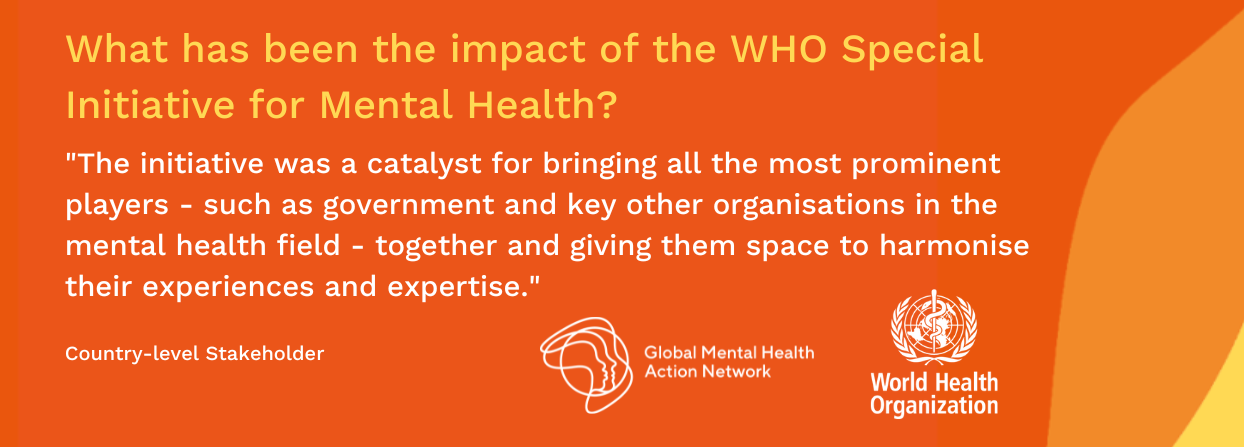Transforming National Mental Health Services
The WHO Special Initiative for Mental Health, launched in 2019, advances policies, advocacy and human rights, to rapidly scale up quality interventions and services for people with mental, neurological and substance use conditions. The Special Initiative for Mental Health aims to ensure universal health coverage (UHC) through access to quality and affordable care for mental health conditions in twelve countries—increasing the availability for 100 million more people.
WHO is implementing this work in 9 countries, working in partnership with Member States, local, and international partners, as well as organisations of people with lived experience. These include Bangladesh, Jordan, Paraguay, the Philippines, Ukraine, Zimbabwe, Nepal, Ghana and Argentina. In each country, the Special Initiative is anchored in two strategic actions:
advancing mental health policies, advocacy and human rights
scaling up interventions and services across community-based, general health and specialist settings.
The status of mental health care varies widely from country to country. By focusing on countries (or large regions within countries) and supporting them consistently for up to five years, WHO will glean learnings to inform scale-up efforts elsewhere. The Special Initiative for Mental Health takes a country-by-country approach to embedding mental health in UHC and working towards mental health transformation.
Implementation plans are based on country assessments and consultations to build on existing resources and strengths and respond to national priorities so that support can be targeted where it is needed most. Ministries of Health are supported to lead national-level transformation with emphasis on scaling up services to districts and regions. In this way, WHO’s Special Initiative for Mental Health hopes to secure sustainable scale-up.
Further details and the activities of countries currently engaged with the WHO Special Initiative for Mental health can be accessed via a dedicated webpage.
Lidiia Lukasevych
Technical Officer, WHO Special Initiative for Mental Health.


